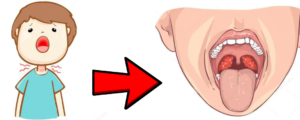Typhoid is an infection caused by the bacterium S. typhi.
The bacterium lives in the intestines and bloodstream of humans. It spreads between individuals through direct contact with the feces of a person with an infection.
No animals carry this disease, so transmission is always from human to human. S. typhi enters through the mouth and spends 1–3 weeksTrusted Source in the intestine. Then, it makes its way through the intestinal wall and into the bloodstream.
From the bloodstream, it spreads into other tissues and organs. The immune system of the host can do little to fight back, because S. typhi can live within the host’s cells, safe from the immune system.
Doctors diagnose typhoid by detecting the presence of S. typhi via blood, stool, urine, or bone marrow sample.
Causes:
Typhoid is caused by the bacteria S. typhi.
It spreads through food, drinks, and drinking water that are contaminated with infected fecal matter. Washing fruit and vegetables can spread it as well if the water is contaminated.
Some people have typhoid without experiencing any symptoms. Others continue to harbor the bacteria after their symptoms have gone. Sometimes, the disease can appear again.
SYMPTOMS
•• Symptoms typically begin 1–3 weeks after exposure to the bacteria
•• The two main symptoms of typhoid are fever and rash
•• Typhoid fever is particularly high, gradually increasing over several days up to 104ºF.
•• The rash, which does not affect every person, consists of rose-colored spots, particularly on the neck and abdomen
•• Diarrhea
•• Loss of appetite
•• Bloating
•• Nausea
•• Weakness
•• Abdominal pain
•• Constipation
•• Headaches
Preventions:
• Protecting the water supply
• Preventing fecal contamination during food production,cooking & refrigerating foods
• Proper boiling of milk & milk products
• Handwashing before preparing foods
• Avoid raw vegetables, washing of fruits & peel off fruits before eating & dont eat the peel.
• Properly washing of hands after using washroom
Complications:
•• GI bleeding and ulcers
•• Peritonitis
•• Sepsis
•• Lung abscess
•• Empyema, or bronchopleural fistula
•• Typhoid encephalopathy
•• Meningitis
•• Muscle rigidity
•• Myocarditis or pericarditis
INVESTIGATION
•• CBC
•• LFT
•• Blood Culture
•• Antigen test
•• Stool culture
•• Urine culture
•• Bone Marrow Biopsy
How Is Typhoid Fever Treated?
Typhoid fever mainly treated with antibiotics like
1. Azithromycin (Zithromax) – is used to treat typhoid fever and also used in pneumonia, common cold, flu, GI upset etc
2. Ceftriaxone – It works by killing bacteria or preventing their growth. However, this medicine will not work for colds, flu, or other virus infections
3. Ciprofloxacin (Cipro) – it also used in typhoid fever
4. Need Iv fluids as severe diarrhea occurs and patient gets dehydrated
Some time in very serious cases need surgery –
very rarely but here patients intestine gets torn or in Intestinal perforation need surgery
Other than antibiotics patients also need self care like
1. Intake more water
2. Take hygienic food and be hygienic

